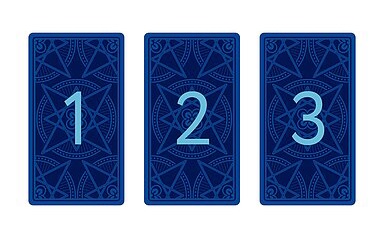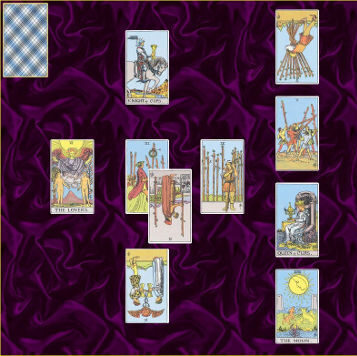
Do you suffer from failure to launch? Have you worthy goals and action plans to achieve them, but instead waste time on other less important activities (time-sucks)? If so, my friend, you are lacking in good ole self-discipline and you are not alone. Fortunately, you can enhance your self-discipline with the Emperor, Tarot’s literal authority on self-discipline.
The Emperor is the 5th card in the Major Arcana section of the traditional Tarot deck. While the Minor Arcana (suit cards) relate to our everyday circumstance, the Major Arcana are archetypes that relate to our big life lessons. And the Emperor archetype specifically exudes self-discipline, the essential trait for success in life. For without self-discipline, we will never achieve our desired goals in the current incarnation.
Symbolism in the Emperor Card
In this card, the Emperor appears as a crown-sporting regal authority sitting upon a throne. Notably, he holds up a golden scepter in his right hand and holds a golden orb in his left palm. Moreover, his armor donned lower legs peek out below his robes, suggesting he’s dressed in total body armor beneath his robe.
Furthermore, the Emperor card is associated with the Zodiac sign of Aries. Notably, Aries is ruled by the planet Mars and is commonly represented by the ram symbol.
Consequently, as a nod to Aries, the Emperor card depicts matching ram heads on the throne’s arm rests and again at the top of the throne’s back. Another nod to Aries, is in the Emperor’s scepter, which is shaped like the astrological glyph that represents Mars, Aries’ ruling planet. And finally the suggestion that the Emperor is wearing battle armor under his robe nods to the planet Mars, named for the Roman God of War. Here, his armor suggests the Emperor is ever battle-ready
When the Emperor Turns up in a Reading
Emperor Card Keywords – Authority, Self-discipline, Leadership
Should the Emperor show up in a reading, he may represent a figure of authority and self-discipline in the Querent’s (reading requestor’s) life. Or he may indicate self-discipline is the key to achieving the Querent’s goals.
Reversed Emperor Card Meaning
Personally, I don’t read reversed (upside-down) cards. But if you do, a reversed Emperor in a reading may mean the Querent needs to exercise more self-discipline in order to improve their situation. Or perhaps it would benefit them to loosen up and go with the flow more. Use your intuition to inform you which is the appropriate meaning in a specific reading.
Enhance your Self-Discipline with the Emperor Spread
- Card 1 – What has distracted me from my goals in the past?
- Card 2 – What personal time-sucks are currently affecting me?
- Card 3 – What action can I take now to assure future quick wins toward my goals?
- Card 4 – What outside influences take me off course from my goal?
- Card 5 – What blocks me from feeling deserving of my goal?
- Card 6 – How can I resist the lure of less important time wasters?
- Card 7 – If I exercise strong self-discipline, how far can I go in achieving my goals?
Final Words for Enhance your Self-Discipline with the Emperor
As you have seen, the Emperor archetype is the quintessential inspiration for exercising one’s self-disciple. And anyone who has achieved success in life will testify, self-disciple was an absolute requirement to achieve that success.
Moreover, self-discipline is needed more today than ever before. For we’re bombarded with enticing activities that waste time better spent on taking action to achieve our goals. Some obvious examples are social media, the googling rabbit hole, and the latest trending pastimes.
If you struggle with distractions from your goals, fI hope you will give this Enhance your Self-discipline with the Emperor Spread a try. I know you will find it as insightful and inspiring as I have.
As always, thank you for reading and Happy Taroting.
Note: To book a professional Tarot reading with Jeannette see our Book a Reading page.































